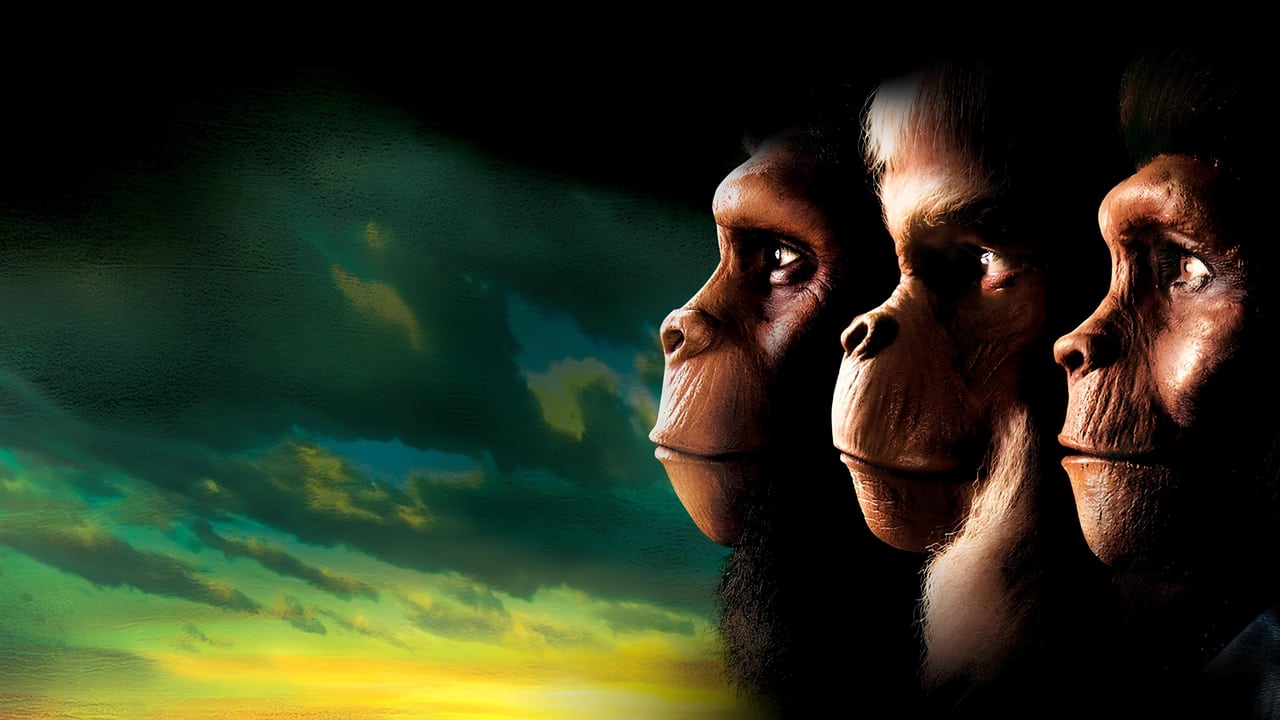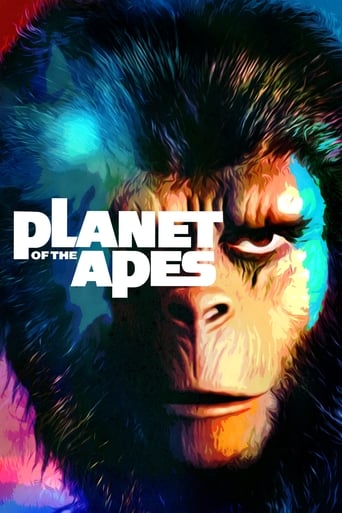

The second greatest film that came out in 1968. The first being Chitty Chitty Bang Bang of course.
... View MoreA 9 for technical achievement alone! A 50 year old movie and the plot and particularly the make-up effects still hold up today.Watched today 05/08/2018 on a 50" UHD 4K Digital LED TV. Even close up, the make-up effects hold-up and would hold up to anything current .
... View MoreTwo enormous SF movies came out in 1968. This is the superior of the two. Planet of Apes spawned franchises, toys, model kits and basically was the blue print for the Star Wars juggernaut that came around a decade later. A brilliant movie with one of the greatest endings ever, it simply has withstood the test of time. The entire cast is as near perfect as a cast can be. This film allows one to suspend their disbelief - for instance why isn't Taylor shocked that the apes speak English? Doesn't matter. Maybe he's in shock. Who cares? What matters is that this movie works on EVERY SINGLE level. With an absolutely superb screenplay by Michael Wilson and Rod Serling (who lifts the death of Stewart from his own Twilight Zone Episode, The Solid Gold Caper) and one of the greatest shock endings (parodied often) in cinema history, this was a classic from it's first screening and it's a classic today. I never get tired of watching this. EVER.
... View More"Planet of the Apes" is still one of the most original and creative films within the last 50 years and one of the most creative. From the moment the film was given the green light and right through to the preview screening, there was always a concern that the final results would be greeted with derision. Happily, this was not the case. Audiences in 1968 had never seen anything like "Planet of the Apes." It is one of those films that could have become quite a different one if writer and dramatist, Rod Serling had had his screenplay used. In the end, some of his work remains in the final screenplay that was re-written. Quite rightly, Rod Serling's name is on the film's credits. The novel on which the film is based, is fairly similar in plotting but has a different ending and several key moments from the book differ from those in the film. The author, Pierre Boulle, was somewhat reticent in allowing his book to be adapted for the big screen. The reason he gave, was that he felt the novel - titled "Monkey Planet" - was one of his lesser works and he didn't take his book seriously. It was the star power of Charlton Heston that convinced Hollywood that the film could be made as a serious bit of cinema. A screen test was commissioned by the studio that agreed to produce the film - "20th Century Fox." The test took place in 1966 and lasts for about 10 minutes. The noted actor, Edward G. Robinson was originally cast as scientist Dr. Zauis but due to a heart condition and not being able to withstand the rather arduous make-up sessions, he had to withdraw from the film. I find that to be a pity as his version of the character would have been an asset to the film. The portrayal given by Edward G. Robinson is a more calm and thoughtful one in comparison with that of Maurice Evans's more bombastic performance. The budget of the film had to be reduced in order to be made. The ape make- up was by far the most important aspect of the budget as it was felt by all concerned that the ape characters had to be believable and convincing. The overall scale, as depicted from the original sketches that showed large theatres and halls, was considered to be too expensive and time- consuming. In addition, the idea of apes using highly advanced technology was dropped for the same reasons. Roddy McDowall and Kim Hunter excel as the two scientists who slowly believe in the existence of man. Charlton Heston was ideally cast as the character who has to adjust to all the events that unfold during the film, not to mention having to fight in order to survive the fate that has been bestowed to him by the apes. The ending still carries a powerful punch and is quite shocking. The first shot of the apes at the beginning is rather startling as they are kept hidden from the viewer's gaze for a few moments. When they are seen for the first time, the moment has been carefully built up. The writing contains the kind of dialogue that any actor can sink his/her teeth into and the script doesn't disappoint. The script is insightful, imaginative and a clear reflection of how mankind treats his own planet. The direction is some of the best I've seen, as is the photography. The director knows how to create the right mood and atmosphere. The music also adds a great deal to the film - it's slightly off centre compositions suit the film very well. A lot depended upon "Planet of the Apes" being a success. Thank goodness it was! All the hard work had paid off. The 1968 film is still the definitive one in every way and is unmatched. A masterpiece of cinema.
... View More